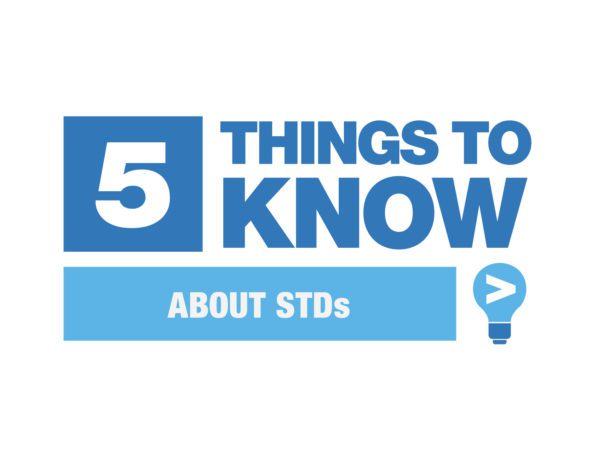Hepatitis B
Hepatitis B is a viral infection that can cause liver disease. About half of people with hepatitis B do not experience any symptoms. There is no cure, but a vaccine is available to protect against infection.
Find STD Testing Near You
Click on a question below to learn more about hepatitis B.
- How do you get hepatitis B?
- What is the hepatitis B vaccine?
- What are the symptoms of hepatitis B?
- What's involved in hepatitis B testing?
- How do you treat hepatitis B?
How do you get hepatitis B?
Hepatitis B is transmitted through semen (cum), vaginal fluids, blood, and urine during sex – vaginal, anal or oral – or through needles, razors, or toothbrushes with blood on them.
Hepatitis B can also be passed to babies during birth if their mother has it and is not treated.
When used consistently and correctly, condoms protect against hepatitis B and many other STDs.
What is the hepatitis B vaccine?
A vaccine to protect against infection is available for hepatitis B. It requires a series of three shots provided by a healthcare provider over several months. You need all three shots for it to be effective.
Most babies now get the hepatitis B vaccine from their healthcare provider as a regular part of their checkups.
What are the symptoms of hepatitis B?
About half of adults with hepatitis B do not experience any symptoms. If people do have symptoms, they may go unnoticed or look like other common illnesses, like the flu. Hepatitis B symptoms typically last for a few weeks, but can sometimes last for months.
If symptoms do appear, they may include: stomach pain, nausea and vomiting, joint pain, fever, dark-colored urine, or hives. Because hepatitis B affects the liver, it may also cause jaundice - when the eyes and skin yellow.
What's involved in hepatitis B testing?
Hepatitis B is tested with a blood sample. It may take up to two months after infection before a positive result.
To find free and low-cost STD testing near you, go to greaterthan.org/services.
How do you treat hepatitis B?
If you have chronic hepatitis B, there are prescription medications that can help keep your liver healthy. Check with a healthcare provider before taking any over-the-counter drugs, vitamins, or nutritional supplements to make sure they won’t further hurt your liver.
The information on this page is adapted from the CDC and Planned Parenthood.
Getting Tested
HIV and other STD testing is available at most doctor’s offices and health clinics. Many health departments also offer testing. It’s fast, easy and most people pay little or nothing.

